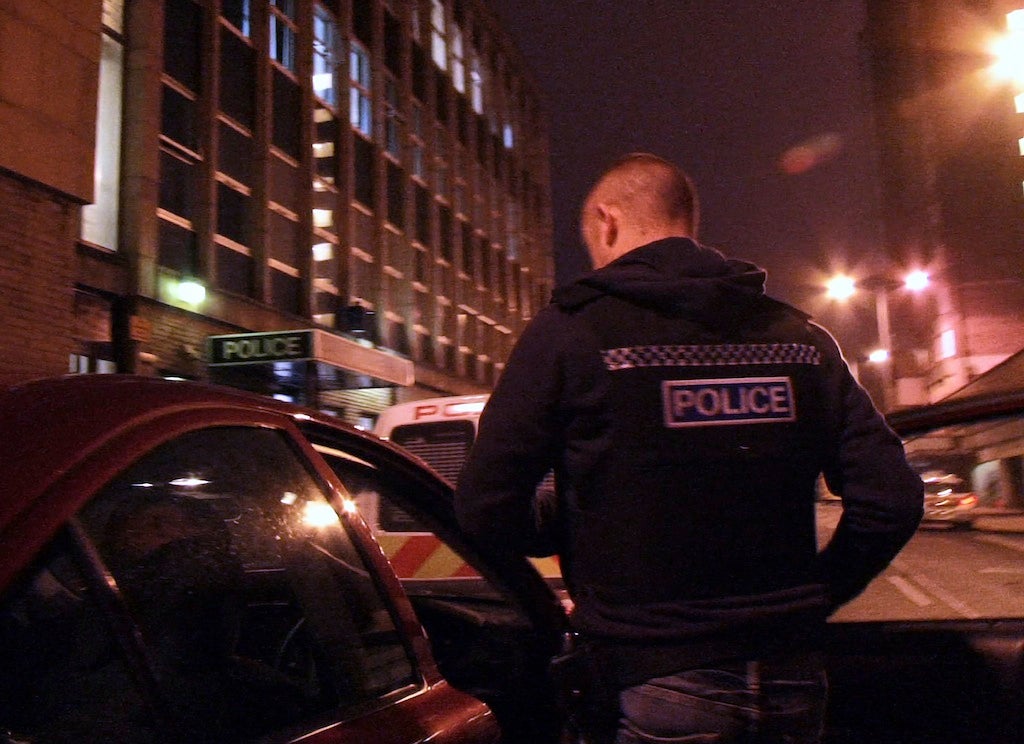TV review: The Hunt for Britain's Sex Gangs, Channel 4
The Last Days of Anne Boleyn, BBC2

Your support helps us to tell the story
From reproductive rights to climate change to Big Tech, The Independent is on the ground when the story is developing. Whether it's investigating the financials of Elon Musk's pro-Trump PAC or producing our latest documentary, 'The A Word', which shines a light on the American women fighting for reproductive rights, we know how important it is to parse out the facts from the messaging.
At such a critical moment in US history, we need reporters on the ground. Your donation allows us to keep sending journalists to speak to both sides of the story.
The Independent is trusted by Americans across the entire political spectrum. And unlike many other quality news outlets, we choose not to lock Americans out of our reporting and analysis with paywalls. We believe quality journalism should be available to everyone, paid for by those who can afford it.
Your support makes all the difference.You don't get a lot of art in a documentary like The Hunt for Britain's Sex Gangs, but Tazeen Ahmad's film about Operation Chalice, a three-year investigation into the trafficking of underage girls in Telford opened with a moment of heightened television rhetoric.
On the screen you saw blurred mug shots tiled on a wall, while on the soundtrack you heard a montage of survivor accounts of the abuse, the recordings hollow and echoey. The visual blurring was tactful expedience, a need to protect the identities of girls who had already been through far too much. The acoustic blurring was something else, an implication of traumatic memory, of events being recollected in anything but tranquillity. And when you got to the rest of the film you understood why. It was a story of prolonged sexual abuse and degradation, followed by extended courtroom sessions that must have felt like a judicial re-enactment of the original assaults.
The evidence was horrible, a squalid perversion of courtship that began with kindness and flattering attention and ended in coerced sex and prostitution, with the girls traded for cash and favours among an extended group of men, including close relatives. It took two really nasty men to set the ring up and supply the girls, but it needed a much larger group of conscienceless men to sustain it, and in the absence of any detailed evidence it was hard to say how far cultural factors had dulled the sense of transgression and shame. I suspect myself that it's more a matter of what inadequate men are prepared to do to vulnerable women than what Pakistanis are prepared to do to white girls. But that issue wasn't really the point here, in a film that was preoccupied with the difficulty of prosecuting such crimes.
Accretion was the principal technique, taking innumerable bits of testimony and evidence that might not have been enough on their own to secure a conviction but which accumulated into a damning case. The perpetrators, cocky and arrogant, were so confident that their victims' accounts wouldn't stand up in court that they virtually taunted the detectives who arrested them. But the grim text messages in which they arranged the delivery of their merchandise – "tell her if she nt ther shes getting nokd out" read one – made it clear what was going on, and DNA supplied corroborating evidence.
When the case went to trial, seven girls found themselves being cross-examined by 21 barristers, repeatedly belittled and insulted in a way that you couldn't avoid comparing to the original rapes. And when the first prosecution fell apart, they had to do it all over again, all the time living in fear of men who'd threatened both them and their families. The police came out of it pretty well – sensitive, dogged and ultimately successful. The CPS and the judicial system weren't looking nearly as admirable.
Then again, The Last Days of Anne Boleyn reminded you why defence lawyers have to be a critical part of any trial process. On this account, even a first-year law student could have punched substantial holes in the charges of adultery and treason laid against the queen, though since the verdict was a foregone conclusion anyway, it wouldn't have made any difference. Given the intense drama of the story told – a reversal of fortunes of dizzying speed – you would have thought the makers might have been able to forgo dramatic re-enactment.
But at least it was kept to illustrative dumb show only, apart from a few moments when actors read lines that had the sanction of the historical record. Even better the disagreements of historians and novelists as to what actually happened were put at the centre of the thing, rather than being tidied away in the interests of a simple narrative. In the blue corner, Hilary Mantel; in the red, Professor Greg Walker. Seconds out! Politely dispute the historical record!
Join our commenting forum
Join thought-provoking conversations, follow other Independent readers and see their replies
Comments